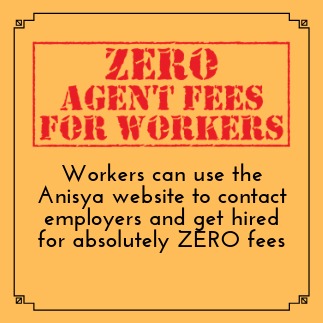Philippine Embassy tightens maid supply

The Philippine Embassy has tightened restrictions on its nationals coming to Singapore to work as domestic workers, a move which, agents say, is likely to lengthen the waiting time for households looking to hire a new maid.
Since last month, the embassy has been processing only five employment contracts per employment agency each week, according to Ms K. Jayaprema, president of the Association of Employment Agencies (Singapore).
A few months earlier, it halved the number of job orders allocated to each employment agency, from around 50 to just 25.
Job orders are the number of workers an agency can recruit at one time. When the job order is used up, they have to apply for a fresh order to be approved, which can take one to two months.
Employment contracts are processed for individual workers after in-principle approval has been given by the Ministry of Manpower.
However, the Ministry says it has not been informed of any new rule regarding a quota on Filipino foreign domestic workers, or a limit in the number of documents processed by the Philippine Embassy.
The embassy’s labour attache could not be reached for comment yesterday. It was reported earlier this year that the embassy planned to reduce the total number of Filipino domestic workers here by 20 per cent over two years.
There are about 70,000 Filipino maids in Singapore, out of a total of around 227,100 maids. Around 1,000 Filipino maids arrive here each month.
Agencies said the quota will increase the waiting time, which is already around three months, for families hiring new maids.
Nation Employment managing director Gary Chin said: “It makes it harder for bigger agencies, whereas smaller agencies with fewer clients may not be as affected. Maybe a general quota for the whole country could be used.”
Ms Jayaprema estimated that 10 per cent of active recruiters, which number around 400 to 500, would be more affected as they are bigger agencies, or focus only on Filipinas.
Some agents also noted the quota could work against accredited agencies who work closely with the embassy, while having little effect on unlicensed agents.
“More and more maids may come in without paperwork from their government, which is an unhealthy outcome of this tightening exercise,” said Ms Jayaprema.
One employer already being forced to wait longer is researcher Margaret Wong, 45, who applied for a new domestic helper in October.
Her previous helper had left Singapore in August after Ms Wong’s father died. Ms Wong’s right hand is in a splint after a fall and her 66-year-old mother has muscular dystrophy, so she finds it difficult to manage chores.
“I can get groceries delivered, but I still need to carry things,” she said. “We need some help with day-today chores.”
A version of this article appeared in the print edition of The Straits Times on December 30, 2015, with the headline ‘Philippine Embassy tightens maid supply’.
View all posts in Anisya Blog
Posted on 31 Dec 2015

Help FDWs avoid debt
Anisya can help with the MOM paperwork

Found a suitable worker on Anisya? We can help with the MOM paperwork. Our service fee is $450. Click here for more info.
Full service hiring available

Need to hire an FDW in a hurry? Let Anisya help you with screening, short-listing and scheduling interviews with workers, and managing all the MOM paperwork formalities! More details here.
Anisya Web Services works in partnership with Anisya LLP (MOM License 12C5866) for MOM related transactions.
Anisya is a proud Social Enterprise member of the Singapore Centre for Social Enterprise (raiSE) and the Business For Good community which promotes the use of business for social impact.
